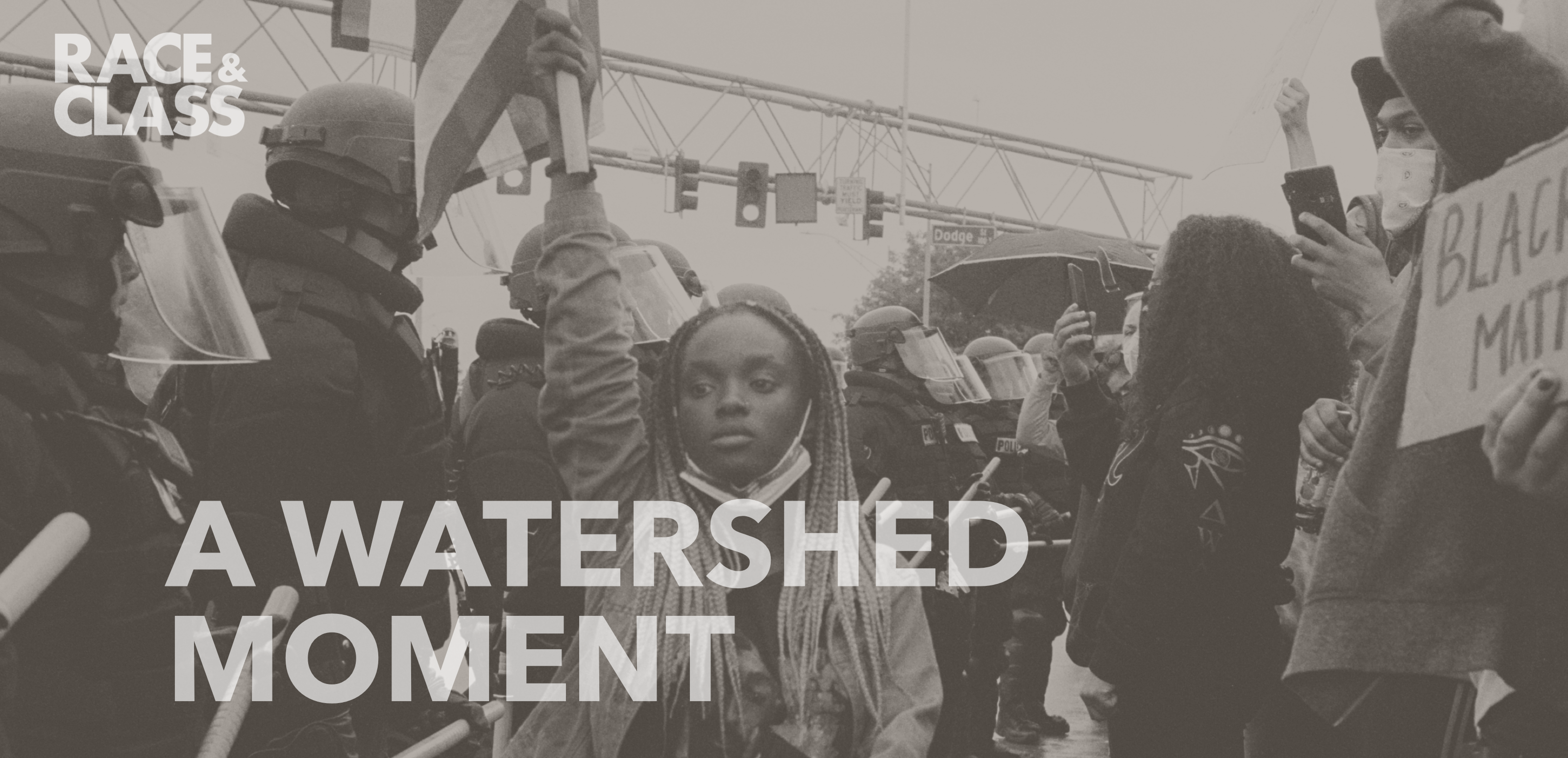The October issue of Race & Class contains key articles that make sense of the crises we are in – of COVID-19, of racist state violence and of global capitalism – and asks, is this a watershed moment?
This year, the COVID-9 pandemic and the Black Lives Matter anti-racist upheaval have dominated the headlines across the world. Key Race & Class analysts make sense of this current moment. In ‘Global capitalism post-pandemic’, professor of sociology and global studies William I. Robinson reveals how the pandemic is accelerating the process of global capitalist restructuring, helping a new bloc of transnational capital to amass ever-greater power.
The technologies of the global police state were brought out in full force against hundreds of thousands of anti-racist Black Lives Matter protesters across the US following the killing of George Floyd. In a crucial interview with black feminist organiser Barbara Ransby she describes how the movement for black lives in the US is a watershed moment that has been years in the making, with black feminists leading the way, pushing a radical, holistic approach to liberation. Two books by political writer Mike Davis, reviewed by UK activist Joseph Maggs, resonate powerfully amid the on-going Black Lives Matter uprisings – The Monster Enters which argues for a reckoning with the global capitalist system, and Set the Night on Fire: on the activism of Black and Chicano LA youth in the ‘60s.
Racist state violence impacts a range of communities, and the early months of 2020 witnessed a spike in anti-Asian violence in the US. Associate professor of history at the University of California, San Diego, Simeon Mann provides a historical lens through which to understand anti-Asian racism, arguing that ‘anti-Asian violence should be seen not merely as episodic or as individual acts of violence targeting Asian peoples but as a structure of US settler colonialism and racial capitalism.’ In a similar vein, professor of media studies Deepa Kumar in a seminal piece on ‘Terrorcraft’, traces the making of the racialised terrorist threat in relation to Arabs and Muslims from the 1960s to the mid-‘80s, revealing how it was crafted deep in the US Empire.
Articles
- Global capitalism post-pandemic by William I. Robinson
- ‘This is what a radical intervention could look like’: an interview with Barbara Ransby by Jenny Bourne
- Anti-Asian violence and US imperialism by Simeon Man
- Terrorcraft: empire and the making of the racialised terrorist threat by Deepa Kumar
- Palestinian leadership and the contemporary significance of the First Intifada by Nadia Naser-Najjab
- Angelo Soliman: desecrated bodies and the spectre of Enlightenment racism by Iris Wigger and Spencer Hadley
Reviews
- The Monster Enters: COVID-19 and the plagues of capitalism by Mike Davis; Set the Night on Fire: LA in the sixties by Mike Davis and Jon Wiener (Joseph Maggs)
- Badges without borders: how global counterinsurgency transformed American policing by Stuart Schrader (Parastou Saberi)
- N’in D’la Owey Innklan: Mi’kmaq sojourns in England by Bonita Lawrence (Chris Searle)
Cover photograph taken by Jesse Freeman, at a Black Lives Matter protest on 30 May 2020 in Omaha, Nebraska.
View the whole issue online here

